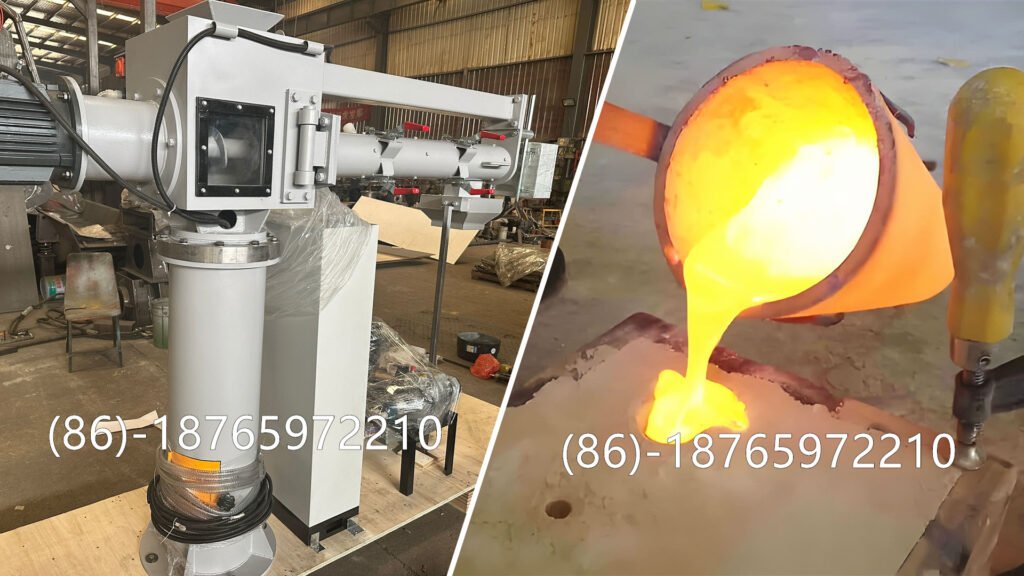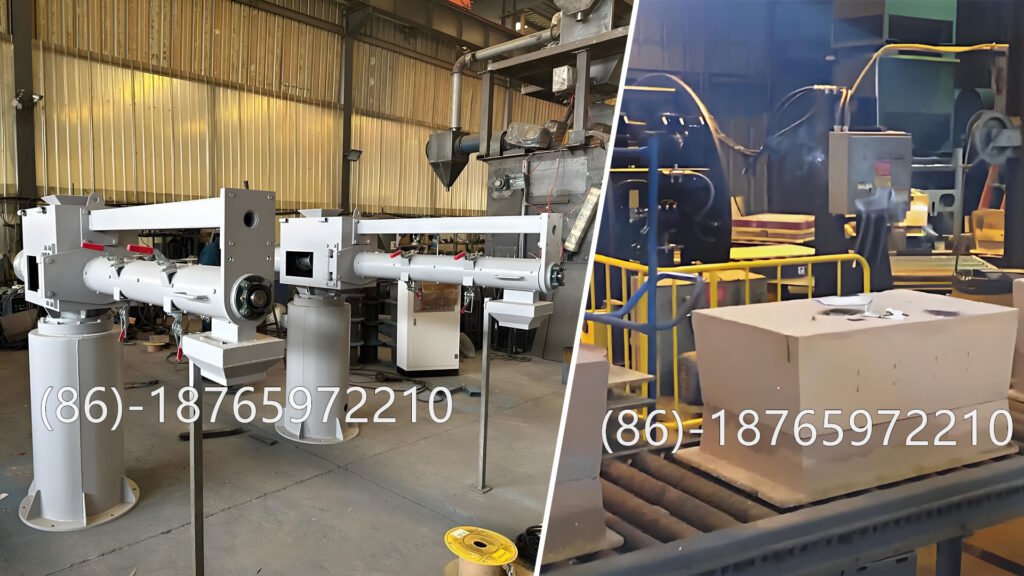In today’s highly competitive foundry industry, efficiency, consistency, and precision define success. The Resin Sand Mixer Machine has become a cornerstone of modern casting technology, enabling foundries to create high-quality molds and achieve superior casting results. By ensuring stronger molds, better castings, and smarter mixing processes, this machine helps manufacturers reduce costs, minimize defects, and maximize output.
Why Resin Sand Mixing Matters
The resin sand process is widely used in no-bake and furan molding systems. Unlike traditional green sand, resin-coated sand offers better dimensional stability, higher strength, and smoother surfaces. However, achieving these benefits depends on accurate mixing of sand, resin, and hardener. Inconsistent or improper blending can lead to weak molds, gas generation, and costly rework.
This is where the Resin Sand Mixer Machine makes a difference. It provides the right balance of automation, precision, and reliability to ensure every batch of sand is perfectly mixed for mold-making.
Stronger Molds with Consistent Quality
The strength of a mold directly influences the integrity of the final casting. Resin sand mixers are designed to ensure:
- Uniform resin coating – every grain of sand is evenly covered, preventing weak points.
- Controlled curing speed – precise dosing of resin and hardener allows for predictable mold setting times.
- Higher mold strength – molds can withstand high-temperature pours and mechanical stresses during casting.
The result is stronger molds with excellent dimensional accuracy, reducing deformation and increasing reliability in high-demand casting applications.

Better Castings with Fewer Defects
Defects in castings not only waste time and resources but also damage a foundry’s reputation. A resin sand mixer minimizes these risks by producing molds with optimal strength and permeability, leading to:
- Reduced porosity and gas-related issues.
- Improved surface finish, requiring less machining and polishing.
- Fewer cracks or inclusions, ensuring better structural integrity.
- Consistent repeatability, guaranteeing uniform quality across production runs.
By cutting down on defects, foundries benefit from lower scrap rates, higher yield, and shorter finishing times.
Smarter Mixing Through Automation
One of the greatest advantages of modern resin sand mixers is their ability to make the process faster, smarter, and more economical:
- Precise control – automated systems regulate resin ratios, mixing speeds, and batch sizes.
- Continuous mixing – some machines offer continuous production, ensuring a steady flow of ready-to-use resin sand.
- Energy efficiency – optimized mixing reduces power consumption and unnecessary waste.
- Ease of integration – mixers can be connected with molding lines and sand reclamation systems for a fully automated workflow.
This smart approach to mixing not only improves consistency but also enhances overall plant productivity.
Key Benefits for Foundries
Investing in a Resin Sand Mixer Machine delivers long-term advantages:
- Higher Casting Quality – cleaner, stronger, and more precise castings.
- Productivity Gains – faster cycles and reduced downtime.
- Cost Efficiency – optimized use of resin and reduced rejection rates.
- Versatility – adaptable for different casting alloys and production scales.
- Reliability – consistent results for both small-batch and mass-production foundries.
Applications Across Industries
Resin sand mixing technology is widely applied in industries such as:
- Automotive – engine blocks, transmission parts, and precision components.
- Shipbuilding – large-scale castings requiring robust mold structures.
- Machinery Manufacturing – gears, housings, and industrial equipment parts.
- Energy & Power – turbine components and heavy-duty castings.
Whether producing small precision molds or large industrial castings, a resin sand mixer ensures foundries can meet strict quality standards while remaining cost-competitive.

Resin Sand Mixer Machine – FAQ
Q1: What is a resin sand mixer machine?
A resin sand mixer machine is foundry equipment that blends silica sand with resin binders and hardeners to produce strong, uniform molding sand for casting.
Q2: How does it work?
The machine feeds sand, adds resin and curing agents, mixes them evenly with high-speed blades or continuous systems, and discharges ready-to-use resin sand for mold making.
Q3: What types of resin sand mixers are available?
- Batch Mixers – For small-scale or customized jobs.
- Continuous Mixers – For high-volume, automated production lines.
- Mobile Mixers – Portable units for flexible use near molding stations.
Q4: What are the benefits?
- Stronger, high-quality molds
- Better casting surfaces with fewer defects
- Smarter, automated mixing with less waste
- Cost-effective and efficient production
Q5: Where are they used?
Resin sand mixers are widely applied in industries such as automotive, heavy machinery, shipbuilding, and energy, wherever precise and durable castings are required.
Conclusion
The Resin Sand Mixer Machine is more than just a piece of equipment—it is a critical investment for foundries aiming to deliver stronger molds, better castings, and smarter production processes. With its ability to improve quality, reduce defects, and enhance efficiency, it plays a vital role in shaping the future of modern foundry operations.
For foundries looking to scale up production, reduce waste, and meet rising quality demands, a resin sand mixer is the key to achieving long-term success.

